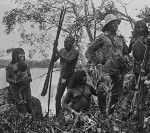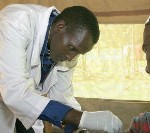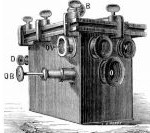July 2015
The article Science, Constitutional Medicine and National Bodily Identity in Brazilian Biotypology during the 1930s written by our
book reviews editor, Ana Carolina Vimeiros, was recently published in Social History of Medicine, a prestigious publication of Oxford Journals. 
The article traces the rise and diffusion of biotypology—and its practices of the bodily classification of people—in the Brazilian scientific agenda.
It addresses the history of biotypology and the socio-political context of Brazil, especially during the Vargas Era from 1930 to 1945.
Biotypological studies operated beyond the realm of medical practice, informing eugenic, racial and national identity debates in Brazil.
In Brazil in the 1930s, biotypology was a foundational doctrine for national medicine. Proposing a holistic view of the organism, biotypology was embraced as a medical science that could overcome approaches focused on illness rather than on the sick person. Among its various meanings, biotypology was described as ‘the science of the individual’.
Ana Carolina Vimieiro Gomes has a PhD in History and is a professor of the history of science in the Department of History at the Universidade Federal de Minas Gerais (UFMG), Brazil.
See in HCS-Manguinhos:
The Biomedicalization of Brazilian Bodies: Anthropological Perspectives (vol.23 no.1 Rio de Janeiro Jan./Mar. 2016).
Gomes, Ana Carolina Vimieiro, Silva, André Luiz dos Santos and Vaz, Alexandre Fernandez. O Gabinete Biométrico da Escola de Educação Física do Exército: medir e classificar para produzir corpos ideais, 1930-1940. Hist. cienc. saude-Manguinhos, Dez 2013, vol.20, no.4, p.1551-1569. ISSN 0104-5970
Gomes, Ana Carolina Vimieiro and Dalben, André. O controle médico-esportivo no Departamento de Educação Física do Estado de São Paulo: aproximações entre esporte e medicina nas décadas de 1930 e 1940. Hist. cienc. saude-Manguinhos, Jun 2011, vol.18, no.2, p.321-336. ISSN 0104-5970
Freire, Gilberto Martins and Rodrigues, Graciele Massoli. Sobre “Cuerpo, discapacidad y estigma en el origen del campo del deporte adaptado de la Ciudad de Buenos Aires, 1950-1961: ¿una mera interiorización de una identidad devaluada?”. Hist. cienc. saude-Manguinhos, Dic 2015, vol.22, p.1789-1791. ISSN 0104-5970
Ferrante, Carolina. Cuerpo, discapacidad y estigma en el origen del campo del deporte adaptado de la Ciudad de Buenos Aires, 1950-1961: ¿una mera interiorización de una identidad devaluada?. Hist. cienc. saude-Manguinhos, Jun 2014, vol.21, no.2, p.421-437. ISSN 0104-5970
Pedraz, Miguel Vicente. Cuerpo y sociedad en el Libro de la anathomía del hombre, de Bernardino Montaña de Monserrate: el sueño político de un anatomista. Hist. cienc. saude-Manguinhos, Nov 2013, vol.20, suppl.1, p.1121-1135. ISSN 0104-5970
Roldán, Diego P. Discursos alrededor del cuerpo, la máquina, la energía y la fatiga: hibridaciones culturales en la Argentina fin-de-siècle. Hist. cienc. saude-Manguinhos, 2010, vol.17, no.3, p.643-661. ISSN 0104-5970








